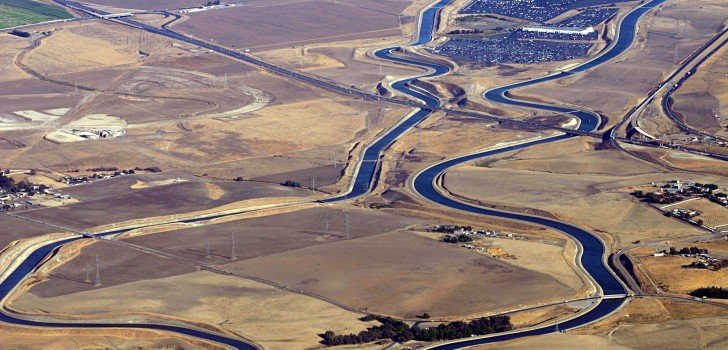Scott Slater has been preparing over two decades for what he thinks will be the next hot commodity: fresh water. In the Mojave Desert, his company, Cadiz, oversees 34,000 acres of land situated above billions of gallons of fresh water, which he hopes to soon begin pumping to California customers.
Before Slater can provide that water to drought-stricken Californians, he has estimated that it will take at least $200 million more than what he has already spent, which is considerable. Over the past ten years, his firm has spent between $10 and $20 million per year, raising the money through issues of company stock and borrowing.
For a price comparison, Las Vegas’ new supply line to Lake Mead had a cost of $817 million, and still awaits completion of a new pumping station in 2020 for $650 million. With Slater’s projection for future costs, his project would end up costing around $400 million.
With support from Wall Street investment firms like Water Asset Management (WAM), Slater has been able to keep the dream alive. John Dickerson of Summit Global Management, with similar investments to WAM, laid out the problem facing Slater, “Cadiz has promoted the dream and for years Wall Street has pumped optimistic paper water for Cadiz. But now the hard question for them is, Where is your real water and when can we drink it?”
Obstacles to completion for projects similar to Slater’s include the usual suspects: regulators, dubious customers, and environmental groups. However, Poseidon Water will soon be able to turn on its new San Diego desalination plant, following 15 years of environmental lawsuits and trouble with regulators.
Many oppose firms like Cadiz and Poseidon merely because they view the idea of profiting from diminishing sources of fresh water as unethical. Once Poseidon’s desalination plant goes online, the price for the average San Diego water consumer will rise from $75 to $80.
Such criticisms seem to ignore the fact that investors in Poseidon and Cadiz have been taking the losses for years, with Poseidon expecting its first ever profit next year.
Realizing the negative impacts that these types of projects can produce, firms like Impax Asset Management have taken a politically safer approach by investing in water supply manufacturers.
One such firm is Xylem, which produces pumps, filters and water treatment supplies.
Regardless of which side of the public-private debate one comes down on, according to industry consultant Steve Maxwell, “It doesn’t make any difference whether it’s a public agency or a private company that manages your water, the prices are going up. It’s not because of municipal inefficiency or corporate greed. It’s because we’re running out of water.”
Stay Connected